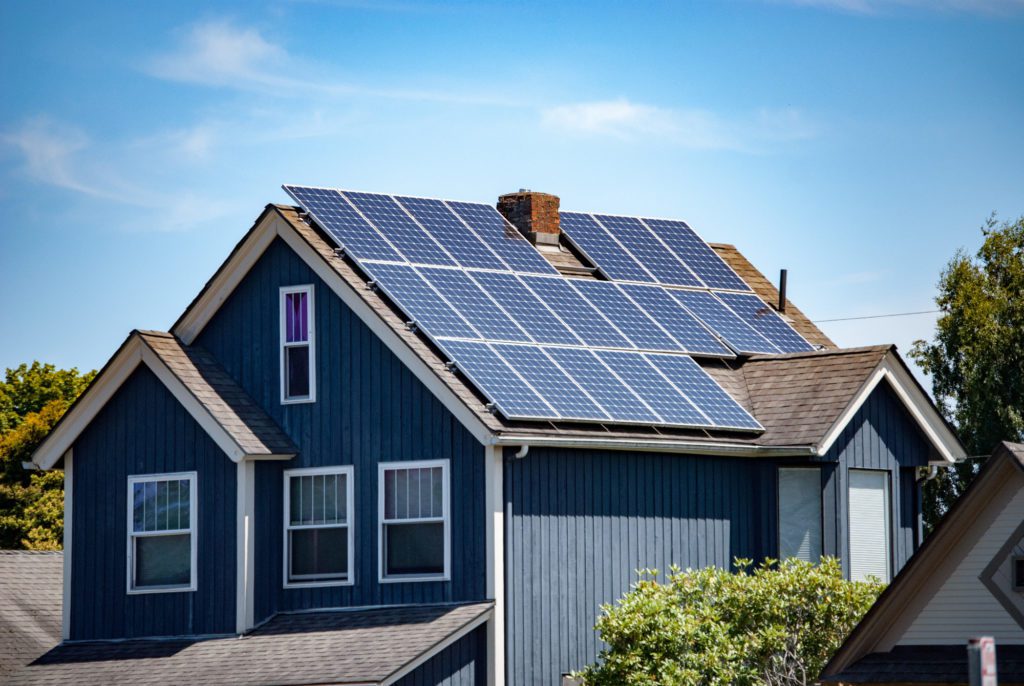
Solar Panels Guide: Understanding the Basics and Types
Solar panels are a popular renewable energy source that can provide clean, sustainable energy for homes and businesses. However, with so many options to choose from, it can be difficult to understand the basics of solar panels and how they work. This blog post will provide a beginner’s guide to solar panels and explain the different types available.
How Solar Panels Work
Solar panels are made up of photovoltaic (PV) cells that convert sunlight into electricity. These cells are made up of semiconductor materials, usually, silicon, that converts the energy from the sun into direct current (DC) electricity. This DC electricity is then sent to an inverter which converts it into alternating current (AC) electricity, which is the type of electricity that is used in homes and businesses.
Types of Solar Panels
There are three main types of solar panels: monocrystalline, polycrystalline, and thin-film.
- Monocrystalline solar panels are made from a single crystal of silicon and are considered to be the most efficient type of solar panel. They are also the most expensive.
- Polycrystalline solar panels are made from multiple crystals of silicon and are less efficient than monocrystalline solar panels. However, they are also less expensive.
- Another type of solar panel is Thin-film Solar Panel. These types of solar panels are made from a thin layer of semiconductor material, usually amorphous silicon, that is placed on a substrate. They are less efficient than other types of solar panels, but they are also less expensive.
Efficiency and Performance of Each Type
The efficiency of solar panels is measured by the amount of sunlight that is converted into electricity. The higher the efficiency, the more electricity can be generated from a given amount of sunlight. Monocrystalline solar panels have the highest efficiency, typically around 15-20%, while polycrystalline solar panels have an efficiency of around 12-15%. Thin-film solar panels typically have an efficiency of around 7-10%.
Solar panels are a clean and sustainable source of energy that can provide electricity for homes and businesses. Understanding the basics of solar panels and the different types available can help you make an informed decision when choosing a solar panel system for your home or business. Efficiency and performance are important factors to consider when choosing solar panels.

The Cost of Solar Panels: A Breakdown by Square Foot
Installing solar panels can be a significant investment, but it can also provide long-term savings on energy costs. The cost of solar panels can vary depending on factors such as the size of the system, the type of panels used, and the location of the installation.
Cost per Square Foot
The cost of solar panels is typically measured by the cost per square foot. This can vary depending on the type of solar panel used and the location of the installation. On average, the cost per square foot of solar panels ranges from $3 to $5.
Types of Solar Panels
The type of solar panel used can also affect the cost per square foot. Monocrystalline solar panels are the most efficient and durable, but they also tend to be the most expensive. The cost per square foot for monocrystalline solar panels ranges from $4 to $6.
Polycrystalline solar panels are less efficient than monocrystalline solar panels but are also less expensive. The cost per square foot for polycrystalline solar panels ranges from $3 to $4.
Thin-film solar panels are the least efficient and durable but also the least expensive. The cost per square foot for thin-film solar panels ranges from $2 to $3.

Examples of Solar Panel Prices
- A 5 kW solar panel system using monocrystalline solar panels can cost between $20,000 and $30,000.
- A 5 kW solar panel system using polycrystalline solar panels can cost between $15,000 and $20,000.
- A 5 kW solar panel system using thin-film solar panels can cost between $10,000 and $15,000.
The cost of solar panels can vary depending on factors such as the size of the system, the type of panels used, and the location of the installation. It’s important to consider the total cost, including the installation cost, when evaluating the cost of solar panels and to compare prices from different vendors and manufacturers.
The Benefits of Using Solar Panels
Solar energy is a clean and renewable energy source that is becoming increasingly popular as a way to power homes and businesses. One of the most popular ways to harness solar energy is through the use of solar panels.
Reduce Energy Costs
One of the biggest benefits of using solar panels is the ability to reduce energy costs. Solar energy is free once the panels are installed, which means that you can generate your own electricity and potentially lower or eliminate your monthly electric bill.
Lower Carbon Footprint
Another benefit of using solar panels is the ability to lower your carbon footprint. Solar energy is a clean energy source that does not produce any emissions, unlike fossil fuels which are the primary source of pollution. By using solar panels, you can reduce your dependence on fossil fuels and help to protect the environment.

Increase Property Value
Installing solar panels on your property can also increase its value. Many home buyers and businesses are looking for properties that are energy efficient, and solar panels can be a big selling point.
Low Maintenance
Solar panels are relatively low maintenance and require little upkeep. They are durable and can withstand most weather conditions. They typically come with a warranty of 25 years, which means that they will work efficiently for a long time.
Net Metering
Net metering is a system that allows homeowners and businesses to send excess electricity generated by their solar panels back to the grid. This means that if you generate more electricity than you need, you can sell it back to the utility company and receive credits on your electric bill.
Solar panels are an excellent way to harness the power of the sun and generate clean, renewable energy. The benefits of using solar panels include reduced energy costs, a lower carbon footprint, increased property value, low maintenance, and the ability to take advantage of net metering. With the cost of solar panels continuing to decrease, it’s a great time to consider installing them on your property.


Leave a Reply